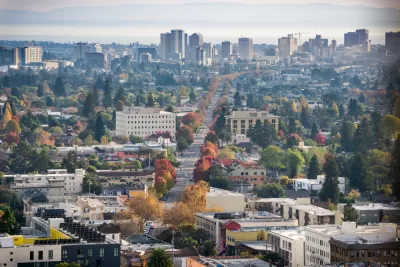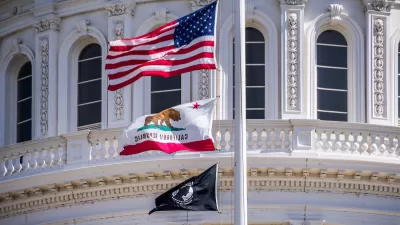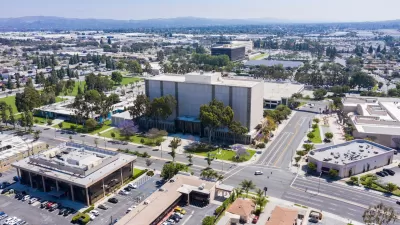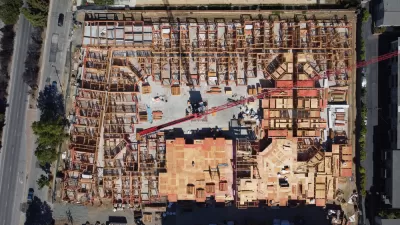Only four Bay Area cities have won the state’s approval for their housing elements, which are required to meet the state’s ambitious housing production targets.

With the January 31 deadline for having housing elements approved by the state come and gone, dozens of California cities will see some of their zoning codes voided under the formerly little-known ‘builder’s remedy’ law, which allows affordable housing projects to bypass local zoning laws.
According to an article by Jack Rogers in Globe St., of the 30 San Francisco Bay Area cities and counties to submit plans (out of 109), only four have had their plans approved by the Department of Housing and Community Development (HCD). “HCD made it clear that it will not rubber-stamp these housing plans when it notified Oakland this week that it has rejected the city’s plan—which exceeded the state’s 26K housing goal for the city by pledging to create 36K new housing units in Oakland.” The HCD rejected the plan, asking the city for proof that the sites it identified for potential affordable housing had a “realistic chance” of development. “The housing regulators also told the Oakland it would need to create a program to track the city’s progress in meeting its state-mandated housing goal, SiliconValley reported.”
The builder’s remedy is one consequence of California’s crackdown on cities that fail to create housing elements that meet the state’s targets for new housing construction, known as the Regional Housing Needs Assessment (RHNA). Cities without approved housing elements can also lose access to state funding sources. San Francisco, one of the four cities to have its plan approved, proposes rezoning that will permit 82,000 new homes in the city.
Already, attempts to use the builder’s remedy have faced legal opposition. A court decision that stalled a 500-unit San Francisco project last October could pave the way for similar actions from opponents of development.
FULL STORY: California Rejects Oakland Housing Plan, Most Bay Area Cities Failed to File

Planetizen Federal Action Tracker
A weekly monitor of how Trump’s orders and actions are impacting planners and planning in America.

Congressman Proposes Bill to Rename DC Metro “Trump Train”
The Make Autorail Great Again Act would withhold federal funding to the system until the Washington Metropolitan Area Transit Authority (WMATA), rebrands as the Washington Metropolitan Authority for Greater Access (WMAGA).

The Simple Legislative Tool Transforming Vacant Downtowns
In California, Michigan and Georgia, an easy win is bringing dollars — and delight — back to city centers.

Supporting Cycling Takes More Than Just Bike Lanes
Safe, protected bike lanes are a key part of a city’s bike infrastructure — but secure parking, e-bike charging, and other amenities can also influence people’s shift to cycling.

Judge Blocks Anti-DEI Rules for Transportation, Housing Grants
A second injunction blocks the Trump administration from enforcing new regulations for federal funding.

Unhoused People in San Jose Could Face Arrest if They Refuse Shelter
A policy proposed by the city’s mayor would give law enforcement the option to arrest homeless residents if they refuse three offers of housing.
Urban Design for Planners 1: Software Tools
This six-course series explores essential urban design concepts using open source software and equips planners with the tools they need to participate fully in the urban design process.
Planning for Universal Design
Learn the tools for implementing Universal Design in planning regulations.
Smith Gee Studio
City of Charlotte
City of Camden Redevelopment Agency
City of Astoria
Transportation Research & Education Center (TREC) at Portland State University
US High Speed Rail Association
City of Camden Redevelopment Agency
Municipality of Princeton (NJ)





























